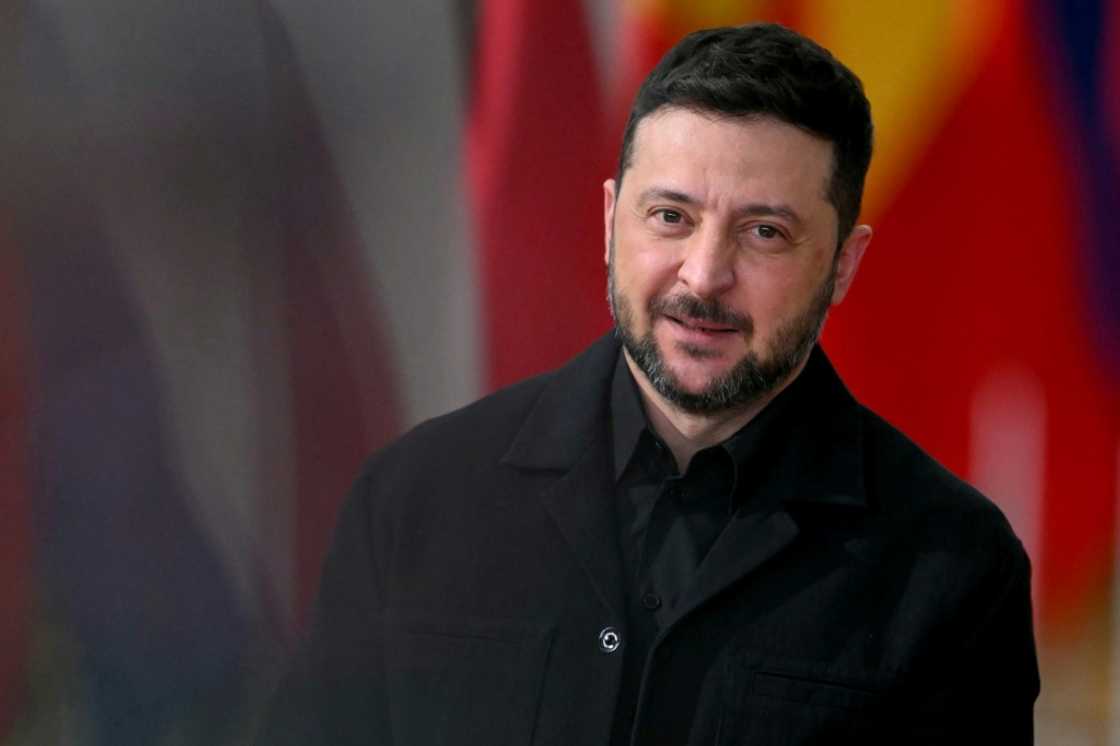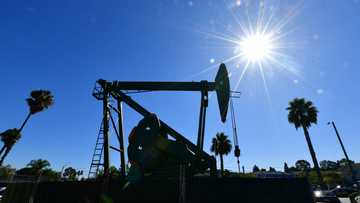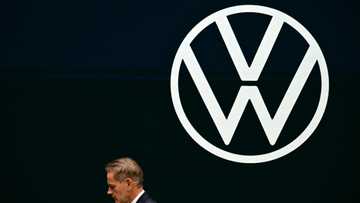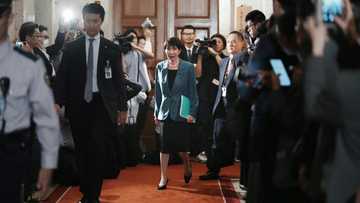Zelensky urges EU to agree frozen assets loan

Source: AFP
Ukraine's President Volodymyr Zelensky urged EU leaders Thursday to agree a mammoth new loan using Russian frozen assets, after US President Donald Trump buoyed Kyiv by hitting Moscow with sanctions.
Trump ordered punitive measures against two Russian oil majors after scrapping a summit with Russia's Vladimir Putin as his patience snapped with Moscow for stalling peace efforts.
The move -- the most direct attempt by Trump to pressure Russia since coming back to office -- drew ire from the Kremlin, which said it risked hurting diplomatic efforts to end the war.
Russia's President Vladimir Putin called the sanctions "unfriendly" but insisted they would not significantly hit the economy. He also called for more dialogue after Trump suspended plans for a US-Russia summit.
But Zelensky called the measures "a strong and much-needed message that aggression will not go unanswered."
As Trump's sanctions shift gave Kyiv a much-needed boost, Zelensky pressed EU counterparts at a summit to agree a plan for a 140-billion-euro ($162-billion) "reparations loan" funded by frozen Russian central bank assets.
EU leaders were locked in discussions on giving a preliminary green light to the proposal that is seen as vital for keeping Ukraine afloat for the next two year.
"I hope that they will make a political decision, positive decision in one or another way to help Ukraine with funds," Zelensky told a press conference in Brussels.
"Russia brought war to our land, and they have to pay for this war," he said, saying Kyiv needed the money from the start of next year.
European Council chief Antonio Costa had sounded an optimistic note as he walked into the summit, saying he expected a "political decision to ensure the financial needs of Ukraine for 2026 and 2027".
But the main obstacle to the frozen asset deal remained Belgium, where the bulk of the funds are held at international deposit organisation Euroclear.
Belgian Prime Minister Bart De Wever reiterated demands for guarantees from all EU countries that they share the risk if Russia sues, and said other countries must also tap Moscow's assets on their territory.
He said he was willing to agree if his conditions are met but warned he "would do everything in my power" to block the plan if not.
EU sanctions
The US sanctions on oil majors Rosneft and Lukoil came as the EU also imposed a 19th package of sanctions on Russia over the war -- targeting Moscow's key energy revenues.
"This is a clear signal from both sides of the Atlantic that we will keep up collective pressure on the aggressor," EU chief Ursula von der Leyen wrote on X.
The US measures represent a major stepping up of its actions against Russia and reflect Trump's growing frustration at being unable to persuade Putin to end the conflict despite what he calls his personal chemistry with the Kremlin chief.
Despite Trump's outreach to Putin, Russia has continued its heavy bombardments on Ukraine, targeting key energy infrastructure ahead of the winter.
Zelensky said he hoped that Trump's shift on sanctions would also herald a change of mind on giving Ukraine long-range Tomahawk missiles -- after Kyiv came away from a meeting in Washington empty handed last week.
Kyiv and its supporters have already sought to seize on Trump's demand for Russia and Ukraine to stop fighting along the current front line and shift the onus from Kyiv to Moscow to make concessions.
As part of the new EU measures, the 27-nation bloc brought forward a ban on the import of liquefied natural gas from Russia by a year to the start of 2027.
It also blacklisted over 100 more tankers from Moscow's so-called "shadow fleet" of ageing oil vessels and imposed controls on the travel of Russian diplomats suspected of espionage.
Source: AFP





